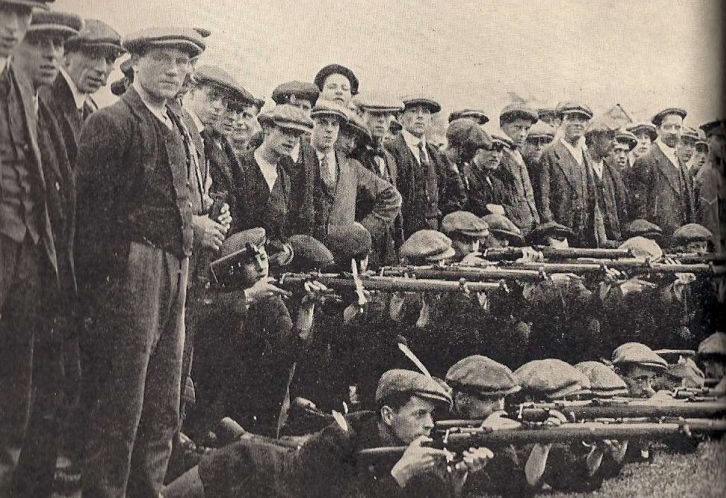Lord Kitchener
When we went to war in August 1914, Lord Kitchener, the Secretary of State for War, realised that Britain needed a larger army. He generated a new volunteer force that became known as 'Kitchener's Army'. He made a direct and personal appeal to the men of Britain and posters were printed showing him pointing his finger with the words 'Your Country Needs You'. Men felt proud at the prospect of fighting for their country and queued outside recruitment offices all over Britain to join the army.
The criteria for selection was that soldiers had be at least eighteen years old to join Kitchener's army, and nineteen before they could be sent abroad to fight, but many younger teenagers tried to 'join up' too. They wanted to be treated like men and thought war would be exciting. Some lied about their age, hoping the recruitment officer would believe them. Often they succeeded and some boys as young as thirteen and fourteen went to war. Over one million volunteers were recruited by the end of 1914 but more were needed.
Not everyone could enlist. Only men could go and they had to be aged between eighteen and forty-one although the age limit was increased to fifty-one in April 1918. Priests and ministers were exempt. Some failed the medical test and others had 'reserved occupations' which meant they did important jobs like drive trains, work in the coal mines, shipyards and munitions factories or were farmers and had to stay in Britain. In the first weekend of the war a hundred men an hour (3,000 a day) signed up to join the armed forces. Fifty-four million posters were issued, eight million personal letters were sent, 12,000 meetings were held, and 20,000 speeches were delivered by military spokesmen. Nearly 1.2 million men queued for hours outside recruitment stations across the United Kingdom for a chance to be part of the action and by the end of 1914 1,186,337 men had enlisted.
The Government was still urging men to volunteer willingly but in 1916, a law was passed that enforced conscription. Those who refused to help the war effort risked being sent to prison. People who refused to fight on moral or religious grounds were known as conscientious objectors, meaning their consciences would not allow them to kill. When conscription was introduced, conscientious objectors had to appear before a tribunal to explain why they would not go to war. There were about 16,000 conscientious objectors of whom some were allowed to do non-fighting work such as farming. Others went to the battlefields, not to fight, but as stretcher-bearers helping to rescue wounded soldiers. Thousands more went to prison where they were often badly treated. To be given a white feather during this time implied that the recipient was a coward simply because he was not in uniform. Sometimes however there was a valid reason why this was not the case.

